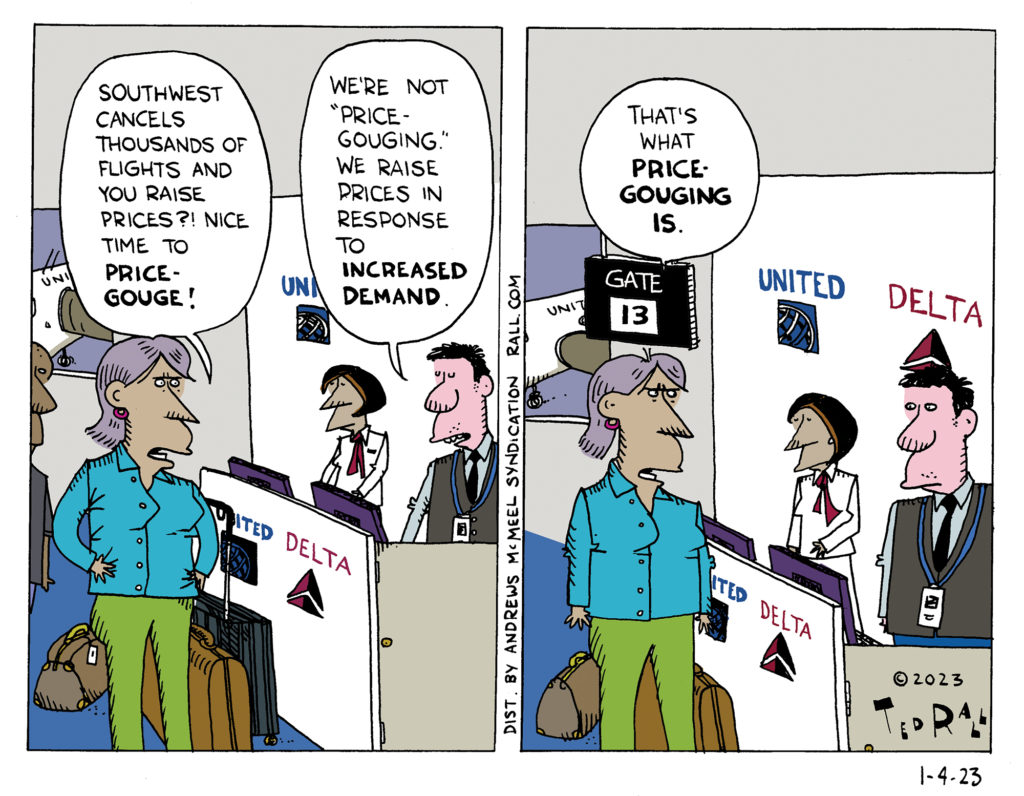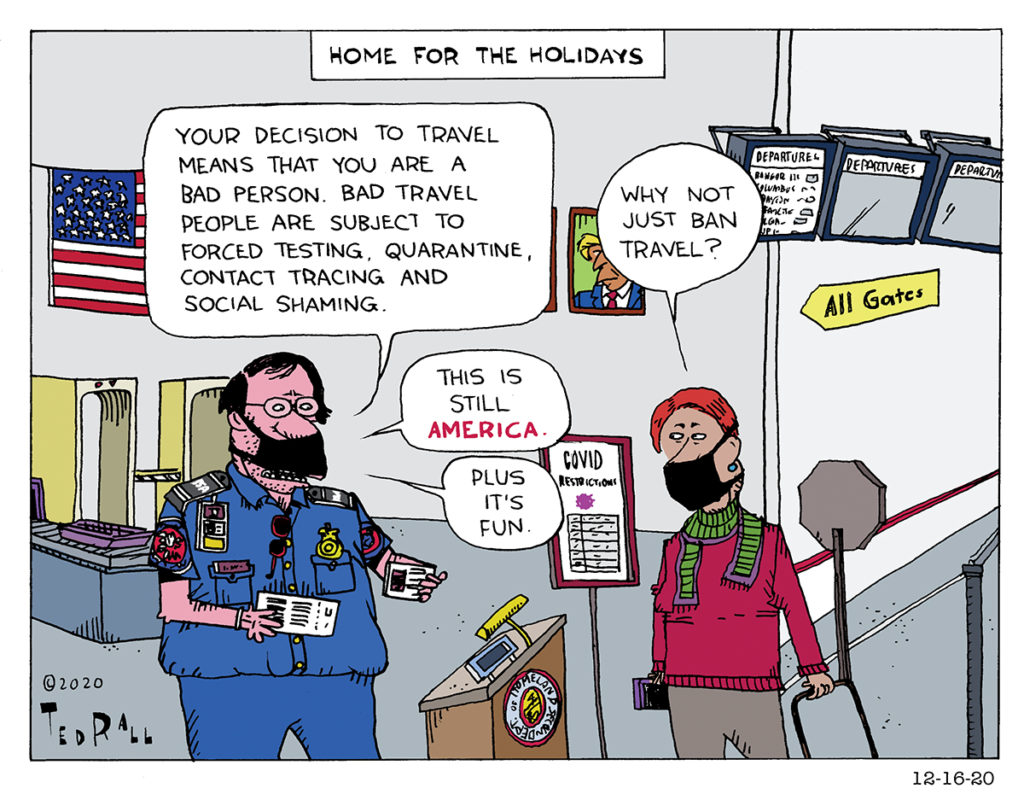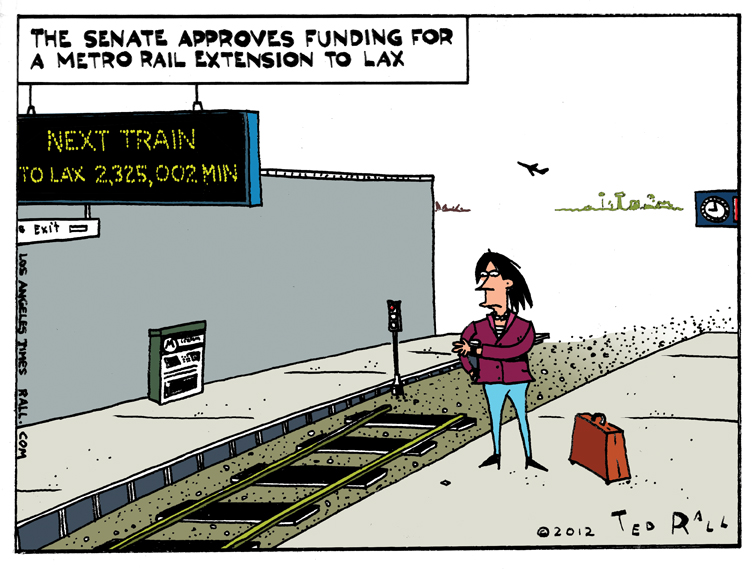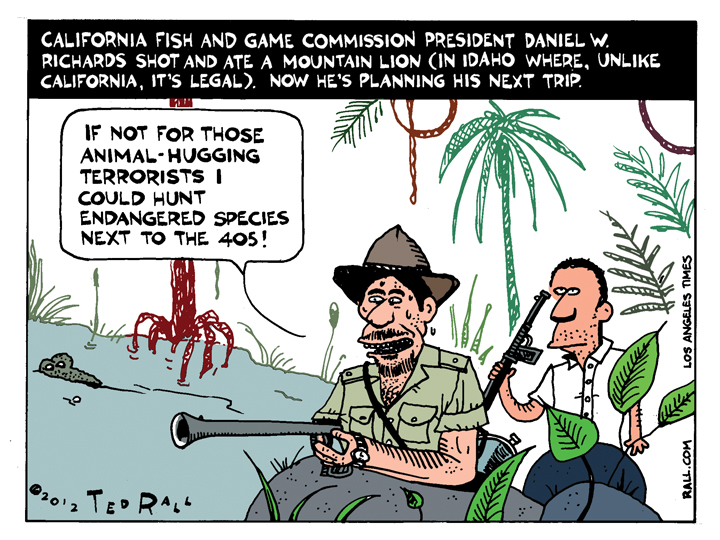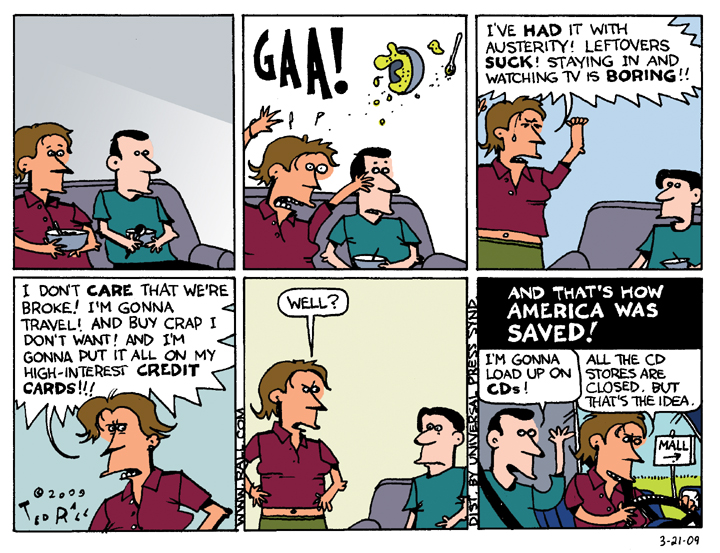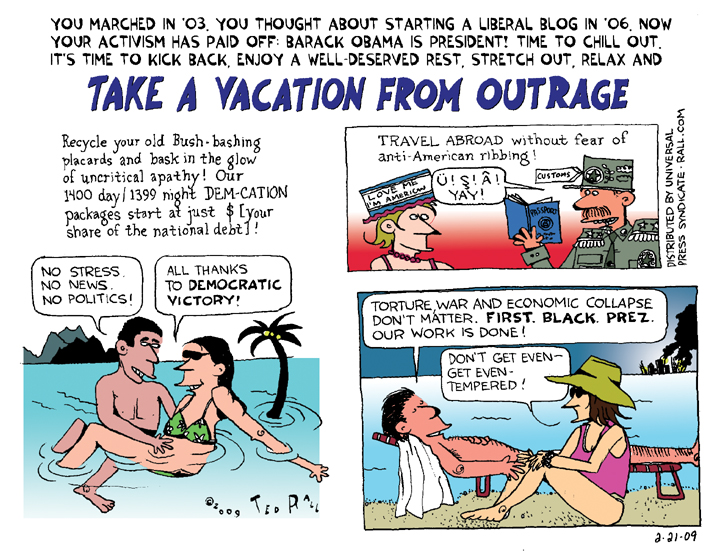A winter storm, labor, shortages, and outdated computer systems caused Southwest Airlines to cancel thousands of flights over the winter holidays. Travelers reported that other airlines, instead of helping out, raised their prices to take advantage of the situation.
Iran Is Not What You Think

War, many people believe, often results from cultural differences and misunderstandings. President Trump’s assassination of General Qassem Suleimeni has Americans considering the possibility that we may soon add Iran to our list of unwinnable wars in the Middle East. As that calculus unfolds, no one questions the assumption that there are irreconcilable differences between our two peoples that can only be worked out via more bloodshed.
Nothing could be further than the truth. No other people in the world are more temperamentally similar to Americans than Iranians. Certainly, the Iranians’ religion is different. So is their language. But we are a lot more like them than most Americans, and that includes members of the news media, assume.
The problem is, very few Americans have been to Iran. The absence of diplomatic relations following the 1979 Islamic revolution and the ensuing hostage crisis that brought down Jimmy Carter’s presidency, coupled with trade sanctions that prohibit American airlines from providing direct air service make it all but impossible for the most intrepid of travelers to get inside the country and see what’s going on for themselves.
I’m not an expert on Iran. But this seems like an appropriate time to share what I learned nine years ago when I visited that country.
As I said, getting in wasn’t easy. I paid numerous visits to the closest thing Iran has to a consulate in New York, Iran’s Mission to the United Nations, to little avail. Ultimately I shelled out a $5700 “arrangement fee” (some would call it a bribe) to a Washington D.C.-based agency that worked through the Iranian Interests section of the Pakistani embassy there to secure visas for myself and two fellow cartoonists.
The main purpose of our trip was travel through Afghanistan for a book I was writing. Since our itinerary through that war-torn country would end with the Afghan city of Herat near the Iranian border, we wanted to leave via Iran after some tourism and rest and relaxation.
You can get an idea of how unusual our plan was from the incredulous reaction of the Afghan border policeman who greeted us after we crossed the border from Tajikistan. “Point of exit?” he asked. When we told him Iran, he laughed. “You are American! There is no way,” he replied. When he showed our Iranian visas to his colleagues, they couldn’t believe their eyes. “How did you get these?” they wanted to know.
Several weeks later, we walked across the border between northwestern Afghanistan and northeastern Iran. It seemed incredibly simple. We were already stamped in and on the curb outside the customs office waiting for a taxi when three bemused agents of Iran’s feared Ettela intelligence service tapped us on our shoulders and invited us into separate interrogation rooms. They grilled us for hours. Before they released us my agent asked me: “Do you know why we questioned you so diligently?” I didn’t. “You three,” he replied, “are the first Americans to cross this border since 1979.” I don’t know if that’s true. Clearly we were rare birds.
The first thing that struck me, especially compared to the bleak devastation of Afghanistan, was how modern Iran was, even in this remote corner of the nation. Americans have an impression of the Middle East as a bunch of dusty pockmarked ruins and sand, but Iran looked and felt like Turkey or Israel in terms of its terrain and infrastructure. The second was how nice everyone was, even/especially after learning we were American.
As required by the government, we had arranged for a travel agent to meet us and shepherd us around. He was a nice guy even though he liked to scam our money; we kept being put up in two-star hotels after we paid him for four.
From the start, Iran wasn’t what we assumed. On the train ride to Mashhad, our fixer disappeared for about an hour. Upon his return he apologized and explained that he had picked up a woman who had taken him to her cabin for a quickie. His promiscuity wasn’t unusual. We were repeatedly flirted with or propositioned by women. The desk clerks at our hotel asked our fixer about our long beards, which we had grown out in order to blend in in rural Afghanistan. “Are your friends fanatics?” they wanted to know. “Would they spend the night with us?”
Along with our beards we had acquired the traditional shalwar kameez white robes worn by conservative Afghans. Our fixer suggested we had a unique opportunity to smuggle ourselves into the haram (forbidden) section of the Imam Reza shrine so we could check out the stunning Timurid architecture. If anyone talked to us, our fixer advised, pretend not to understand them. Muslims come from all over the world to pray there so we could pretend to speak a different language. Worshipers circled the tomb of the 9th century Shia martyr Ali al-Ridha seemingly in a trance but, whenever someone spent too long in the center an attendant lightly dipped a pink feather duster strung from a pole onto the offender to ask him to move on.
Two incidents stood out for me.
At our hotel in Tehran we overheard a European couple complaining to the desk clerks that they had been mugged or pickpocketed, I don’t remember which, the night before. They had been robbed of €1200. The clerks repeatedly entreated them to report the loss to the police but the Europeans were understandably hesitant. The next day I encountered the pair in the elevator. “You won’t believe what happened,” the wife told me. “We went to the police and they gave us €1200.” There was a law that foreign tourists had to be made whole if they suffered a financial loss due to crime. Iranians we talked to were surprised that it wasn’t the same in the West.
We flew from Tehran to Istanbul. At our last security checkpoint in Iran airport security personnel ordered us to remove our baggage from the conveyor belt leading to the x-ray machine. Great, I thought, we’re going to be detained. “You are guests in our country,” the equivalent of the TSA guy advised us. “It would be rude to subject you to a search.” We were Americans, citizens of the Great Satan, at Ayatollah Khomeini International Airport!
Not everything was sweetness and light.
There was always a sense of tension that comes with knowing that law-breaking could come with grave consequences. For the most part, however, we followed the rules. Most of the people we saw obeyed them too, but just barely. Many women wore the tightfitting manteau and barely covered their hair.
When our Turkish Airlines flight lifted up from Tehran, many of the women on board dumped their chadors, revealing skin and sexy outfits and makeup. People smiled. Flight attendants began serving beer. This is what Iran would feel like if Iran’s government, which is not popular, were to go away tomorrow.
Trump’s latest actions and America’s myopic foreign policy, however, ensure that the religious government will probably remain in place for the foreseeable future.
So does the fact that very few Americans have gotten to know Iran.
(Ted Rall (Twitter: @tedrall), the political cartoonist, columnist and graphic novelist, is the author of “Francis: The People’s Pope.” You can support Ted’s hard-hitting political cartoons and columns and see his work first by sponsoring his work on Patreon.)
SYNDICATED COLUMN: What a Real Passenger Bill of Rights Should Look Like
The violent ejection of a United Airlines passenger from a flight bound from Chicago to Louisville appears to have marked a long-awaited turning point. Dr. David Dao, 69, suffered a broken nose, lost two teeth and faces reconstructive sinus surgery. At last, America’s long-suffering flying public is crying as one, have you commercial airlines no shame?
Americans have been mad as hell. Now, it seems, they’re not going to take it anymore.
How will the politics of protecting travelers from rapacious — and sometimes brutal — air carriers play out? With the Republicans in control of all three branches of government, will this moment pass without significant legislative action as did the mass school shooting in Newtown, Connecticut? Or will Trump’s Congress be forced to act?
Thanks to nickel-and-diming us with $30 baggage and seat fees, the airlines are raking in billions. So they can easily afford changes that benefit consumers but cost their bottom lines.
Even the IRS is more popular than the airlines. So politicians aren’t taking any risks by taking them on.
Now is the time to act. Consumer advocates should set a high bar for their demands — and insist that Democrats get behind them. Dems should be able partner with Republicans on this one; “airlines suck” is bipartisan.
What would a genuinely kickass passenger bill of rights look like?
Americans sometimes point to Europe as an example. But the EU code is toothless.
Case study: A service truck ran into my Norwegian Airlines plane before its scheduled morning takeoff from Martinique. The plane was grounded indefinitely. Understandable. Less understandable was how Norwegian treated us: late that that night, they flew us to the neighboring French island of Guadeloupe, put us up in a filthy, dangerous motel and flew us to New York the next day — more than 24 hours later.
EU rules say I should have received 400 euros compensation for the delay. Citing the time-honored corporate doctrine of “we don’t feel like paying just because,” the jerks at Norwegian denied my claim. Norway’s national aviation authorities gave me the brush-off, referring me to France. I contacted the French — lucky for me I’m fluent, but what if you’re not? — who’ve never bothered to reply.
Airlines poll just behind price-gouging low-service cable companies as America’s most hated business sector. This is a disaster. Since radical problems require radical solutions, let’s think big.
Class Warfare: Trudging through first class to steerage isn’t just an insult to human dignity. In a country that overthrew aristocracy, special titles and privileges (business class, Sky Club members, Platinum Gold Whatever) are anti-American. The airline class system incents efficiency experts to target the flying top 1% with beds at the expense of such amenities as room for the knees of the 99%. The Department of Transportation should ban class distinctions. Let all seats be created equal.
One Price Fits All: Obama-era DOT rules require airlines to clearly post fees for “extra” services like luggage. Two pieces, plus a purse or briefcase or small backpack, ought to be part of the flat fee everyone pays. The current system, in which the stripped-down Spirit appears as cheapest in listings but hits you up for $50 a bag and so winds up being the most expensive, is ridiculous.
NOverbooking: McDonald’s can’t sell the same Big Mac to two customers. How does it make sense to allow airlines to sell 140 tickets on a plane with 120 seats? That’s overbooking. If a paid passenger misses her fight, sell it to a standby if there is one. Otherwise let the seat fly empty and let us stretch a little.
Ban Surge Pricing: Sophisticated algorithms designed to maximize airline profits have frequent flyers sharing dubious tips (Tuesday is the cheapest day to buy your ticket) and clearing their web browser cookies to stymie airlines whose prices mysteriously creep up after each search (buy now or else). Whether on Uber or United, surge pricing is creepy and annoying and requires too much work for flyers. Set a price and stick with it, dammit! SFO to JFK on Delta should cost the same regardless of the time of day or day of week.
No Preferential Seating: With the exception of families traveling with small children, the disabled and trying to keep groups together, seats should be assigned randomly without consideration for frequent flier status or anything else. Particularly disgusting has been the recent practice of airlines that only allow advanced assignments for premium extra-cost seats, fooling some victims into buying something they don’t need and stressing out everyone else.
Ergonomic Reform: Leg room, pitch and seat width in coach have been shrunken to the point that the average person is cramped and uncomfortable. For safety reasons alone — evacuating a stricken aircraft through narrow aisles and rows is slow and thus dangerous — the FAA should set significantly more generous minimum standards for seat spacing. A middle-seat passenger ought to be able to get out to go the restroom without forcing his neighbor on the aisle to stand up.
Last and perhaps least, my personal bugaboo: what’s up with those last rows in some planes, where the seats can’t recline? That’s just mean.
(Ted Rall is author of “Trump: A Graphic Biography,” an examination of the life of the Republican presidential nominee in comics form. You can support Ted’s hard-hitting political cartoons and columns and see his work first by sponsoring his work on Patreon.)
Los Angeles Times Cartoon: Waiting
I draw cartoons for The Los Angeles Times. This week we look at the possible imminent conclusion to the long wait LA commuters have endured until their Metro system finally makes it all the way to Los Angeles International Airport.
Some people I showed this to asked why I depicted a woman instead of a man because you know, the “generic human” is a white male in his 50s (perhaps, in an editorial cartoon, wearing a hat). As readers know, I try to avoid such tired tropes as much as possible. Women take trains too.
Los Angeles Times Cartoon: The Great Hunter
I draw a weekly editorial cartoon for The Los Angeles Times. With a little luck—and a bigger budget for hiring—this might turn into a staff cartooning job where I’d be doing work about Los Angeles and California throughout the week. If you’re an LA Times reader and you’d like to see me do more work for them, please let them know!
Here is this week’s offering: California Fish and Game President Daniel W. Richards shot and ate a mountain lion in Idaho, where it’s legal. Where will he go next?
Boycott the Body Scan
If you’re flying Thanksgiving week, support the national boycott on the radiation-based body scan machines at TSA checkpoints. Insist on a pat-down. It’s humiliating and intrusive, but at least there won’t be a nude image of you on sale somewhere next year. Also, it slows down the system–which could force the government to reconsider this awful decision.

